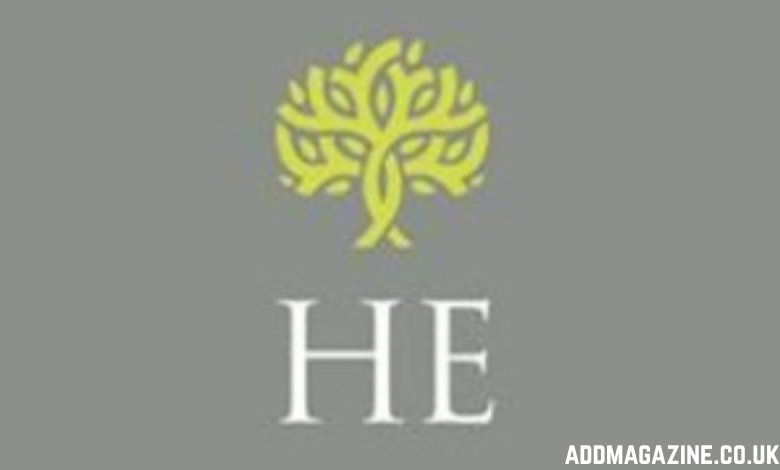In today’s rapidly evolving world, innovation is at the heart of almost every successful business. One company that embodies this spirit is Harben Emarand (HE), a business dedicated to transforming industries such as Rail, Logistics, Leisure, and Environmental services. With a focus on providing innovative, cost-effective solutions, HE is making its mark in a variety of sectors, offering products that promise to streamline operations, enhance efficiency, and elevate leisure experiences.
In this article, we’ll delve into the story of Harben Emarand, examining its history, products, and the future of its innovations. Specifically, we’ll explore the company’s flagship product, Herbie, and its journey from a waste management tool to a versatile, multi-functional solution used in several industries.
Harben Emarand: A Vision of Innovation
Harben Emarand’s mission is clear: to deliver innovative products that address pressing challenges across multiple industries. Whether it’s in logistics, rail transportation, leisure, or environmental management, the company is committed to creating practical solutions that solve real-world problems. What sets Harben Emarand apart from its competitors is its ability to not only think outside the box but to break the box entirely and develop products that disrupt traditional industry norms.
HE’s approach to innovation is not just about creating new products, but about understanding the unique needs of businesses and finding ways to meet those needs more efficiently. This mindset has helped the company develop products like the Herbie, a mobile space solution that has far exceeded expectations and redefined its category.
The History of Harben Emarand
The journey of Harben Emarand began in 2016 with the launch of its first product, Herbie, under trial conditions in Warrington, England. The company’s vision at the time was to address the significant challenges in waste management. However, what started as a waste management solution soon evolved into something far more versatile and transformative.
In 2017, Harben Emarand began to reposition the Herbie product. Originally designed for waste management, the company recognized the potential for Herbie to serve as a multi-functioning mobile space solution, beyond its initial application. This shift in marketing strategy began to show promising results as the product gained traction in the market.
By 2019, the concept of Herbie as a waste management solution was well understood in the market. However, Harben Emarand took it a step further by introducing Herbie Space in January 2020. This new iteration was designed not only for waste management but also for leisure and logistics applications, opening up a whole new range of possibilities for customers to define how they wanted to use the product.
Through a refined marketing approach, Harben Emarand emphasized the flexibility and adaptability of the Herbie. The new direction expanded its appeal to a wider audience, enabling customers to see the product’s potential in multiple industries, including transportation, logistics, and event space management.
Herbie: The Game-Changer
At the core of Harben Emarand’s success is its flagship product, Herbie. Initially designed as a waste management solution, Herbie has since evolved into a multifunctional mobile space solution, adaptable to various sectors. The company’s ability to transform a product and repurpose it for a range of industries has been one of its most notable achievements.
Herbie was designed with efficiency and versatility in mind. The product is mobile, which means it can be used in numerous environments and situations where traditional fixed solutions might not be as effective or practical. In the waste management sector, for instance, Herbie offers a streamlined solution for waste collection, ensuring that businesses can keep their premises clean while minimizing logistical challenges. However, this was only the beginning.
In leisure and event management, Herbie can serve as a portable event space, providing a flexible venue that can be easily transported and set up in various locations. Its modular design allows customers to customize the space based on their specific needs, whether it’s for a concert, conference, or community event.
Moreover, Herbie has found its place in logistics. The product’s design allows it to function as a mobile storage solution that can be moved easily between locations, offering businesses the ability to manage inventory more efficiently. Whether used to store goods temporarily or to manage logistics on-site, Herbie’s versatility makes it an invaluable asset to many industries.
The Broader Impact: Emarand’s Role in Rail and Logistics
Harben Emarand is also playing a critical role in the rail and logistics industries. In the past, rail networks have primarily been seen as a method of transportation, but Harben Emarand has begun to explore how they can be used for more than just passenger or freight movement. The company has introduced the idea of using traditional rail services for logistical purposes, such as transporting mobile space solutions like Herbie across regions, thus revolutionizing how goods and services are delivered.
By integrating Herbie with rail logistics, Harben Emarand envisions a world where businesses can use rail networks to transport not only goods but also mobile spaces, offering customers a new level of flexibility. This shift could reduce transportation costs and enhance the speed of delivery for businesses relying on mobile storage solutions, all while minimizing environmental impact.
This new way of thinking about rail and logistics could reshape the industry by introducing new, sustainable practices and making traditional transportation networks more dynamic. The potential to integrate Herbie with rail transportation could be a game-changer for industries dependent on both logistics and mobile space solutions.
Environmental Considerations and Sustainability
Sustainability is another driving force behind Harben Emarand’s product development. With growing concerns over environmental impact, companies across industries are increasingly seeking ways to reduce their carbon footprint and operate more sustainably. Harben Emarand’s products, including Herbie, are designed with this in mind.
Herbie’s ability to adapt to multiple industries and functions can help companies reduce waste, lower energy consumption, and improve overall efficiency. By introducing mobile, flexible solutions for waste management, leisure, and logistics, the company is enabling businesses to operate in a more environmentally friendly manner, contributing to broader efforts to combat climate change.
In addition, the potential for using rail networks to transport goods and mobile spaces could offer a more sustainable alternative to traditional transportation methods. Rail transport is generally considered more environmentally friendly than road transport, making it a logical choice for businesses looking to reduce their carbon footprint while enhancing logistical capabilities.
The Future of Harben Emarand
Looking ahead, Harben Emarand is positioned for continued growth and success as it expands its product offerings and explores new markets. The company’s focus on innovation will likely drive the development of even more advanced products and solutions to meet the needs of its diverse customer base.
The future of the Herbie product is bright. With ongoing efforts to refine its functionality and adapt it to different industries, Herbie is poised to become a mainstay in the logistics, leisure, and environmental sectors. As businesses continue to seek more flexible, efficient solutions, the demand for mobile space solutions like Herbie is expected to increase.
Additionally, the integration of rail logistics with mobile space solutions could reshape the way businesses think about transportation. The ability to use rail networks for both goods and mobile space transport opens up new possibilities for businesses looking to improve efficiency, reduce costs, and contribute to sustainability efforts.
In the coming years, Harben Emarand’s focus on problem-solving and developing innovative products will likely result in new solutions that address some of the most pressing issues facing industries today. As the company continues to expand its influence and explore new opportunities, its commitment to innovation and efficiency will remain at the core of its mission.
Conclusion
Harben Emarand’s commitment to innovation has led to the development of products that are changing the way businesses operate across multiple industries. From waste management to leisure and logistics, the company’s flagship product, Herbie, has proven to be a versatile, cost-effective solution that meets the needs of a wide range of customers.
With a focus on sustainability, efficiency, and problem-solving, Harben Emarand is poised to continue leading the charge in industry innovation. As the company expands its reach and explores new markets, the potential for further growth and success remains limitless. Whether through the continued evolution of Herbie or the integration of rail logistics, Harben Emarand is setting the stage for a future where businesses can operate more efficiently, sustainably, and effectively.
Emarand’s innovative spirit shows that the future of business is about more than just creating products—it’s about creating solutions that push the boundaries of what’s possible and meet the ever-changing needs of industries worldwide.




